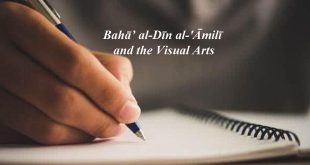A new scholarship is available for an exciting research project that investigates the transformation of Shii Islam in the Middle East and Europe since the 1950s.
A new scholarship is available for an exciting research project that investigates the transformation of Shii Islam in the Middle East and Europe since the 1950s. “Creating an alternative umma: Clerical Authority and Religio-political Mobilisation in Transnational Shii Islam” is funded by a consolidator grant of the European Research Council. The project begins in January 2018 and will in the course of its five-year duration include four post-doctoral researchers and two additional PhD students.
The project’s principal investigator is Professor Oliver Scharbrodt. The project examines the formation of modern Shii communal identities and the role Shii clerical authorities (marja’iyya) and their transnational networks have played in their religio-political mobilisation. The project focuses on Iran, Iraq and significant but unexplored diasporic links to Syria, Kuwait and Britain.
The PhD student will work on the first thematic area of the project which begins in January 2018. As part of this thematic area, the various ways in which Shii clerical authorities in Iran and Iraq have positioned themselves towards the modern nation-state are explored. One focus is Iraq. The establishment of parliamentary democracy and of a Shii-dominated state in Iraq post-2003 has yielded new dynamics between clerical and political authorities. The PhD student will work on how the clerical establishment in Najaf has intervened in and positioned itself towards post-2003 Iraqi sectarian politics and responded to the sectarianisation of Middle Eastern geopolitics.
The award includes funding for a full-time PhD studentship to begin in January 2018. The studentship includes a stipend of £20,500 per annum*
The successful applicant will benefit from:
- A fully-funded three-year PhD (fees and stipend of £20,500 per annum*) in a leading UK university
- Guidance from leading experts in the field and research training from the University of Birmingham Graduate School
- Workspace and resources to attend and present at conferences
- An interdisciplinary research team involved in innovative and cutting-edge research on modern and contemporary Shii Islam
- A vibrant research environment in the Department of Theology and Religion.
Informal enquiries after September 1 2017 may be addressed to Professor Oliver Scharbrodt – o.scharbrodt@bham.ac.uk
*Please note, course fees are not included separately and will be payable. Fees for 2017/18 are Home / EU: £4,195 full-time or £15,210 full-time for International students.
Funding Notes
Applicants should have an excellent first degree and a Master’s degree in Islamic/Religious Studies, Middle Eastern/Iranian Studies, History, Political Science or equivalent.
The candidate must be able to demonstrate competence in accessing primary material in their original language (Arabic and possibly Persian).
To apply, please send a CV. and a 5000-word writing sample, together with a covering letter outlining your suitability for the studentship and the names of two referees to –
calpg-research@contacts.bham.ac.uk
Interviews will be conducted following the closing date and candidates invited to interview will be contacted directly.
Funding Details
*Please note, course fees are not included separately and will be payable. Fees for 2017/18 are Home / EU: £4,195 full-time or £15,210 full-time for International students.
Funding Currency
GBP-British Pound by default. Please state if different.
 Ijtihad Network Being Wise and Faithful Muslim in the Contemporary World
Ijtihad Network Being Wise and Faithful Muslim in the Contemporary World
